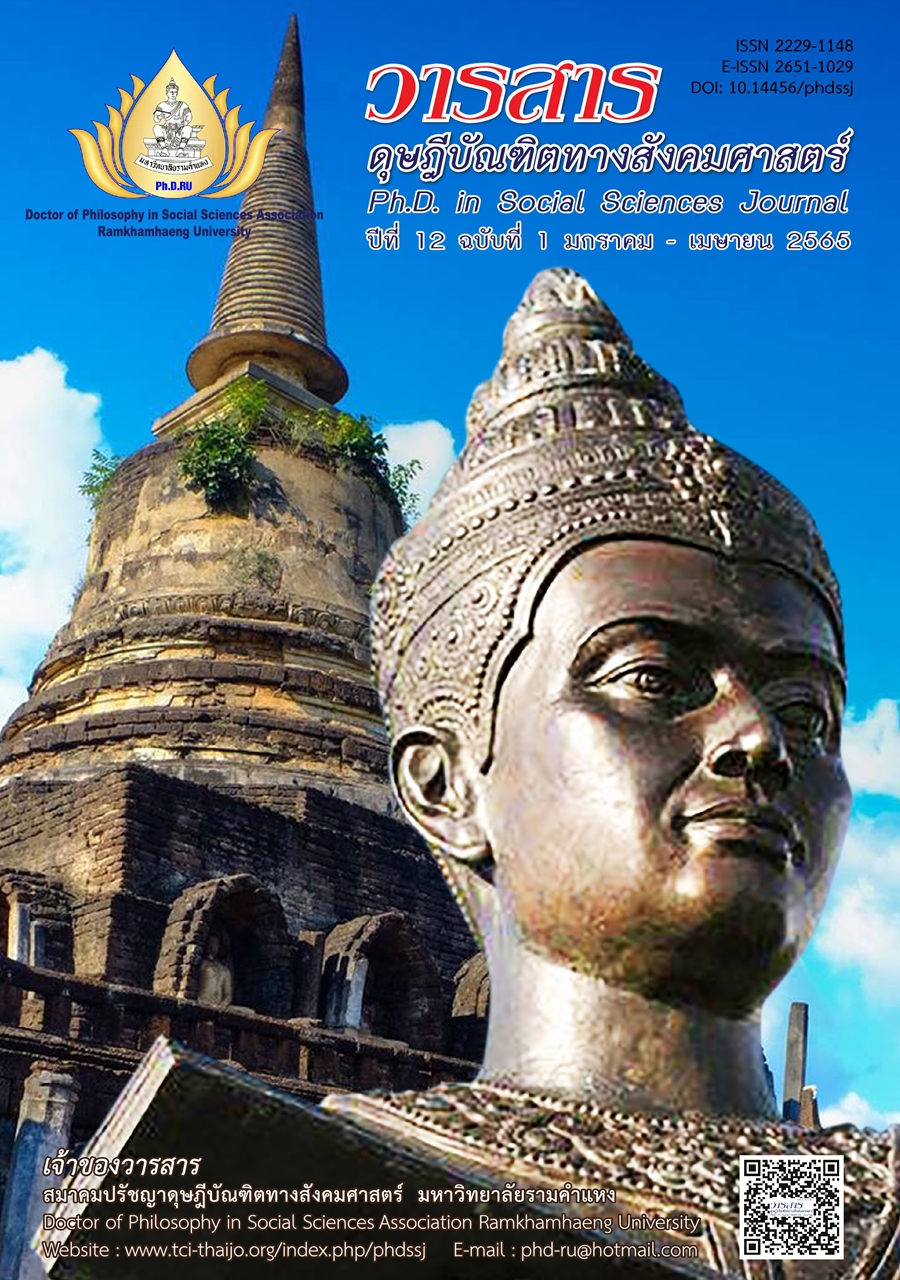Buddhist Temples and Socialization in the Upper Southern Region of Thailand
Main Article Content
Abstract
The objectives of this research are as follows: (1) To study the social capital of the temples in the upper southern region and the relationship between the temple and communities surrounding the temple. (2) To study the socialization methods of the temple in the upper southern region. (3) To study the achievement of the socialization of the temple in the upper southern region. The qualitative research was monitoring and in-depth interviews. The data were collected and analyzed with descriptive statistics. The supplementary information were collected by interviewing 5 youths and 5 people. who received the socialization from Wat Phothawas. The data collected were analyzed with content analysis.
The research results can be summarized as follows: (1) The social capital of the temple in the upper southern region and the relationship between the temple and communities surrounding the temple; The temple was ready in terms of physical characteristics, policies, instructors, curriculums and teachings to which will socialize the Buddhists effectively. (2) The socialization methods of the temple in the upper southern region are unique because of a wide range of social problems in the areas. Therefore, contents, characteristics and objectives of sermons by monks are to reduce social problems. (3) The achievement of the socialization of the temple in the upper southern region for the individual aspect was overall at a high level in all aspects. The results were consistent with the opinions of the youths that one self has development in all aspects. The results were consistent with the opinions of the people that the society has safety in all aspects.
Article Details

This work is licensed under a Creative Commons Attribution-NonCommercial-NoDerivatives 4.0 International License.
Academic articles, research articles, and book reviews in the Ph.D. in Social Sciences Journal are author’s opinions, and not the publisher’s, and is not the responsibility of the Ph.D. in Social Sciences Journal Philosophy Association, Ramkhamhaeng University. (In the case that research is done on human, the researcher has to be trained in Ethics for Doing Research on Human Training and has to produce the evidence of the training).
References
Adiwatthanasit, C., Sudsawas, S., Rerkrujipimol, C., Wiriyasomboon, P., Piromkaew, S., & Petchrapha., S. (2009). Sociology (14th ed.). Kasetsart University Press. [In Thai]
Bandura, A. (1977). Social learning theory. Prentice Hall.
Buranachai, P. (2013). The development of civic duty, culture and social life. by using teaching aids and practice exercises for Mathayomsuksa 4 students at Sai Nam Phueng School in the patronage. Secondary Education Service Area Office, District 2. [In Thai]
Commission on Religion, Art, Culture and Tourism. (2015). Report of an academic seminar on cultivating morals, virtues, ethics and desirable values. National Legislative Assembly. [In Thai]
Department of Religious Affairs. (2007). Project to study the roles of monks and the development of morals and ethics according to the philosophy of sufficiency economy. Author. [In Thai]
Gagne, R. M. (1977). The conditions of learning. Holt, Rinehart, & Winston.
James, A. G., Lester, A. M., & Brooks, G. (2014). The effects of denomination on religious socialization for Jewish youth. Youth & Society, 46(6), 875-891.
Jitsawang, S. (2016). Documents lectures on criminology and penalology. Faculty of Political Science, Chulalongkorn University. [In Thai]
Lovheim, M. (2012). Religious socialization in a media Age. Nordic Journal of Religion and Society, 25(2), 151-168.
Muller, T. S., De Graaf, N. D., & Schmidt, P. (2014). Which societies provide a strong religious socialization context?: Explanations beyond the effects of national religiosity. Journal for the Scientific Study of Religion, 53(4), 739-759.
Na Thalang, E. (2001) Thaksin wisdom (2nd ed.). Amarin. [In Thai]
Office of the National Economic and Social Development Board. (2007). Strengthening social capital for sustainable development in the 10th national development plan. Author. [In Thai]
Phra Brahmagunabhorn (P. A. Payutto). (2012). Master principles of personal development (24th ed.). Dharma in Trend. [In Thai]
Phra Paisal Visalo. (2018). Strengthening moral power in Thai society. Retrieved from https://www.visalo.org/article/budKarnsermsang.htm [In Thai]
Priest, N., Walton, J., White, F., Kowal, E., Baker, A., & Paradies, Y. (2014). Understanding the complexities of ethnic-racial socialization processes for both minority and majority groups: A 30-year systematic review. International Journal of Intercultural Relations, 43(Part B), 139-155.
Suphap, S. (2002). Social problems (22nd ed.). Thai Wattana Panich. [In Thai]
Thandee, D. (2017). Social and cultural changes. Ramkhamhaeng University Press. [In Thai]
Thitathan, S. (2013). Teaching document on belief and religion in Thai society (16th ed.). Sukhothai Thammathirat Open University Press. [In Thai]
Yamane, T. (1973). Statistics: An introductory analysis (3rd ed.). Harper & Row.


